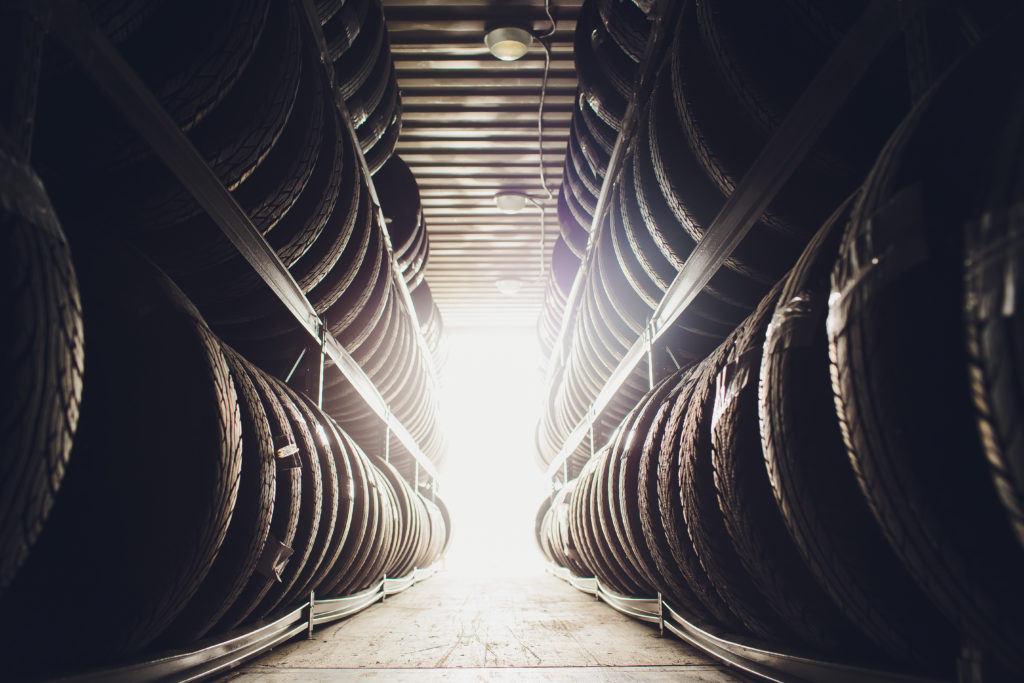
Tire manufacturing leaders throughout the commercial vehicle market in North America have been halting production as the COVID-19 crisis brings a decline in overall demand.
These companies saw shutdowns begin in late March, which are currently expected to last through April.
“Because of the complexity involved, we are not sharing detailed information on how each individual plant will be affected,” said a Michelin company spokesman. “Michelin North America has never been involved in a widespread shutdown like this in the past.”
Michelin has announced shutdowns at particular facilities, while Bridgestone Americas Inc, Cooper Tire & Rubber Co., and Goodyear Tire & Rubber Co. announced temporary shutdowns at all plants.
After 2019 saw the tire industry facing a steep decline in original equipment demand, the North American truck cycle ended up in a retreat.
This pandemic is clearly making matters much worse.
When Goodyear originally took steps to close its manufacturing facilities in Europe, it decided to phase out North and South American facility production the following day–affecting an additional 13 tire plants throughout the two continents and roughly 17,000 workers.
“During this unprecedented and extremely fluid situation, Goodyear’s top priorities are the health and wellbeing of our associates and service to our customers,” Goodyear said in a statement. “We are closely monitoring both inventory levels and supply of raw materials and have optimized our warehouse and distribution operations to continue delivery of Goodyear products. All associates who are able to perform their roles remotely have been encouraged to work from home.”
Still, the company remains optimistic about future earnings.
“As we enter the new decade, it’s clear that the inflection point in new mobility is here” said Richard Kramer, Goodyear Chairman and CEO. “Tire technology is rapidly advancing to meet the needs of electric vehicles including range, ride and handling, and durability improvements. Intelligent tires will be integrated in autonomous driving systems.”
However, Michelin reported worrisome mid-February data. Original equipment truck and bus tires throughout the continent had fallen by 21%, and replacement demand by 6%.
In regards to COVID-19 restrictions, Michelin said its affected production does not include critical tires for the sake of economic continuity. Customers will continue to receive support through existing inventories in the company’s distribution and logistics activities.
“While we are facing some supply chain disruption, our components, semi-finishes, and products are still able to circulate,” said Michelin in a statement. “As the situation changes, we will make adjustments to our production accordingly. It is still too early to assess any possible impact this situation could have on our industry long-term.”
Cooper Tire & Rubber Co., along with other tire manufacturers, has implemented techniques to further protect employees and customers, including travel restrictions, social distancing rules, remote working, frequent deep cleaning and disinfecting of facilities, and stricter visitor limitations.
Although Cooper’s plants in China have reopened, its European and North American plants have been closing as the coronavirus situation is monitored and adjusted to.
Hankook Tire is currently working to buy back shares in order to boost shareholder value, and plans to purchase around KRW 50 billion of shares over the next six months.
This announcement comes after the company stated it would shut down its Clarksville, Tennessee manufacturing hub, and that its plants in Asia were working to support its facilities throughout the United States. If needed, those overseas plans can provide production assistance, help supply raw materials, and assist with other shipments.
Hankook said in a statement that it is still too soon to tell how much impact coronavirus will have on its business, but for now, all employees and company partners have postponed unnecessary travel, and those who have traveled for personal reasons have been asked to self-quarantine.
“Currently there is a lot of unknown, and it depends on what happens as events unfold in the United States over the next three to four weeks,” said a spokesperson in the statement. “We are already seeing automotive manufacturing plants shutting down worldwide, so we would expect a fall-off in OE demand. It’s a difficult time for everyone right now and we hope that the economic conditions will begin to recover in the second half of 2020.”
The company said it is currently working on methods of enhancing e-commerce and is finding strategies to secure profitability during a decline in the prices of raw materials.
Additionally, a $2 trillion stimulus package has been passed by congress that will include $367 billion for small business, and the Tire Industry Association is one group looking for this aid for its members.
“TIA represents small businesses that cannot switch their core functions to remote operation during this disaster,” said Roy Littlefield IV, Director of Government Relations for TIA. “Tire dealers are staying open under these conditions to especially service trucks, emergency vehicles, and vehicles of medical personnel. Tires and tire dealers are essential to keeping the flow of supplies to stores and hospitals.”
Reader Interactions